Intentar ORO - Gratis
Getting Started
Cobblestone American History Magazine for Kids
|Cobblestone February 2025: Women Trailblazers of the 1800s
In this editorial cartoon, a young 19th-century woman must overcome the obstacle of carrying a heavy burden while climbing a multirung ladder before she can achieve "Equal Suffrage."
-
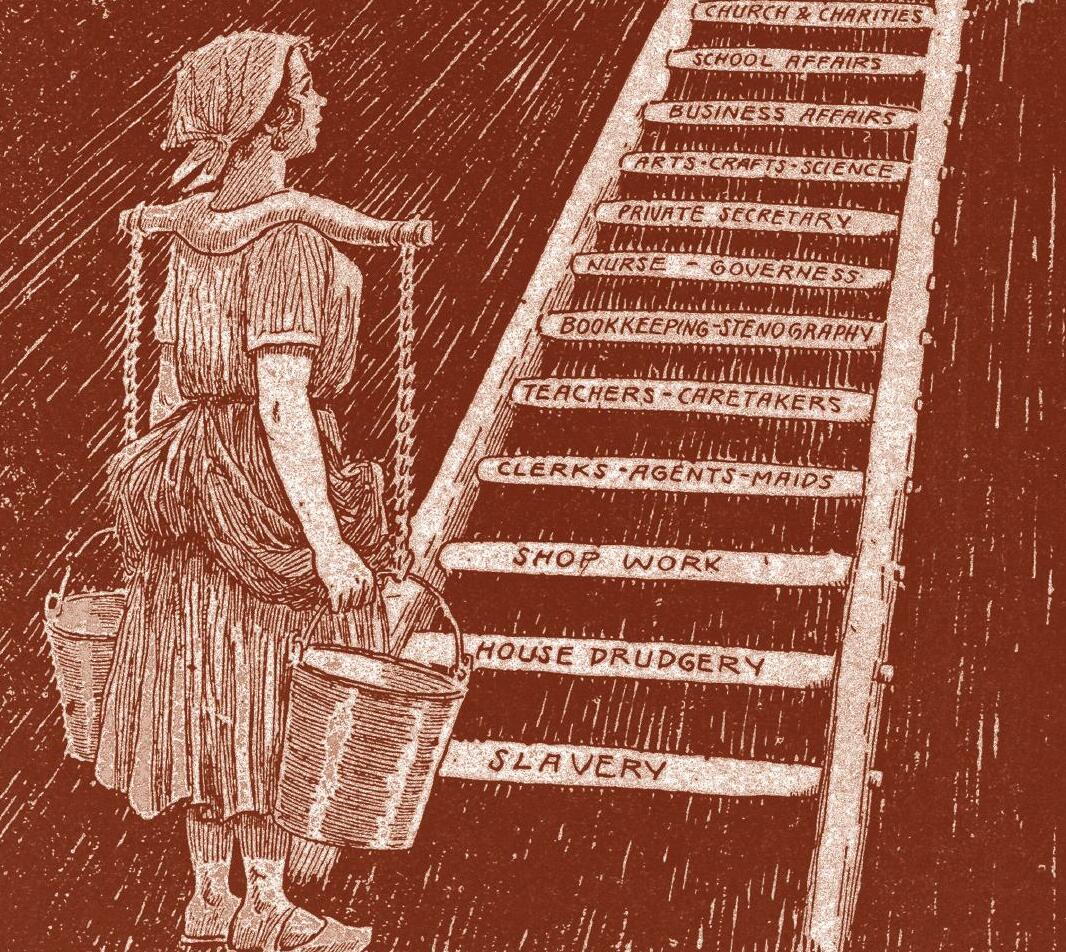
Women's place in society was much different at the beginning of the 1800s than it is today. Two hundred years ago, women were viewed as being less intelligent, more emotional, and weaker than men.
Customs and laws gave a male head of a household the power to make all major decisions for the women in his family. Daughters only left home when they got married. Married daughters shifted from being a father's responsibility to being a husband's responsibility. Most married women could not own property or pursue careers. They could not vote or hold office. They could not make public speeches. In a nutshell, women did not experience independent lives.
In the 1800s, women's sphere of influence was in the home. Most women were full-time mothers and wives. They devoted their lives to caring, cooking, and cleaning for their family. The work was constant and routine. Monday was laundry day.
Esta historia es de la edición Cobblestone February 2025: Women Trailblazers of the 1800s de Cobblestone American History Magazine for Kids.
Suscríbete a Magzter GOLD para acceder a miles de historias premium seleccionadas y a más de 9000 revistas y periódicos.
¿Ya eres suscriptor? Iniciar sesión
MÁS HISTORIAS DE Cobblestone American History Magazine for Kids
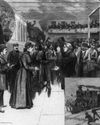
Cobblestone American History Magazine for Kids
nellie Bly Journalist
nellie Bly's first newspaper articles appeared in print when she was just 20 years old.
2 mins
Cobblestone February 2025: Women Trailblazers of the 1800s
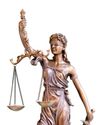
Cobblestone American History Magazine for Kids
Arabella Mansfield -Lawyer
Arabella Mansfield started out life as Belle Babb (1846-1911). She grew up in a Midwest family that valued education. In 1850, her father left to search for gold in California. He died in a tunnel accident a few years later.
2 mins
Cobblestone February 2025: Women Trailblazers of the 1800s
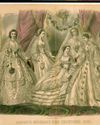
Cobblestone American History Magazine for Kids
Sarah Josepha Hale Editor
Long before Vogue or Glamour caught women's attention, Godey's Lady's Book introduced the latest fashions.
3 mins
Cobblestone February 2025: Women Trailblazers of the 1800s
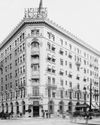
Cobblestone American History Magazine for Kids
Louise Blanchard Bethune - Architect
Louise Blanchard Bethune (1856-1915) showed early promise in math. Lucky for her, her father was the principal and a mathematics teacher in a school in Waterloo, New York. Instead of going to school, Louise's father taught her at home until she was 11 years old. She also discovered a skill for planning houses. It developed into a lifelong interest in architecture and a place in history as the first professional female architect in the United States.
2 mins
Cobblestone February 2025: Women Trailblazers of the 1800s
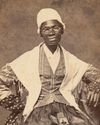
Cobblestone American History Magazine for Kids
Sojourner Truth Speaker
There was a time when slavery wastes abolished the institution over a number of decades. New York abolished slavery in 1827. Isabella Baumfree (c. 1797-1883) was born enslaved in Hurley, New York. When she was nine, she was taken from her parents and sold. She then was sold several more times. Some of her owners were cruel and abused her. During that time, she had several children.
1 mins
Cobblestone February 2025: Women Trailblazers of the 1800s

Cobblestone American History Magazine for Kids
Getting Started
In this editorial cartoon, a young 19th-century woman must overcome the obstacle of carrying a heavy burden while climbing a multirung ladder before she can achieve \"Equal Suffrage.\"
2 mins
Cobblestone February 2025: Women Trailblazers of the 1800s
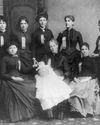
Cobblestone American History Magazine for Kids
Leonora M. Barry - Investigator
When Leonora M. Barry (1849-1923) was a young girl, her family left Ireland to escape a famine. They settled in New York. Barry became a teacher. In 1872, she married a fellow Irish immigrant. At that time, married women were not allowed to work. So, Barry stayed home to raise their three children.
2 mins
Cobblestone February 2025: Women Trailblazers of the 1800s

Cobblestone American History Magazine for Kids
Finding a New Path
For many Americans, this month's mystery hero represents the ultimate modern trailblazer. She is recognized by just her first name.
1 min
Cobblestone February 2025: Women Trailblazers of the 1800s
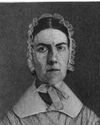
Cobblestone American History Magazine for Kids
The Grimké Sisters Abolitionists
Every night, Dinah was supposed to brush the E hair of her mistress, Sarah Moore Grimké (1792-1873). But one night, 12-year-old Sarah stopped Dinah. She wanted to help Dinah instead. They had to be quiet so they wouldn't get caught. It was 1804 in Charleston, South Carolina. The Grimkés were among Charleston's major slaveholding families. Strict laws regulated the behavior of both master and enslaved people.
4 mins
Cobblestone February 2025: Women Trailblazers of the 1800s
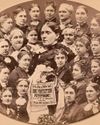
Cobblestone American History Magazine for Kids
Frances Willard Leader
During Frances Willard's lifetime (1839-1898), she was the best-known woman in America: She headed the largest women's organization in the worldthe Woman's Christian Temperance Union (WCTU). In that role, her abilities shone as a social activist, a dynamic speaker, and a brilliant organizer. She educated women on how to run meetings, write petitions, give speeches, and lobby state and federal legislators.
2 mins
Cobblestone February 2025: Women Trailblazers of the 1800s
Listen
Translate
Change font size

